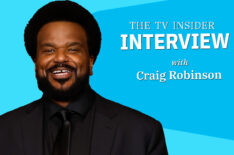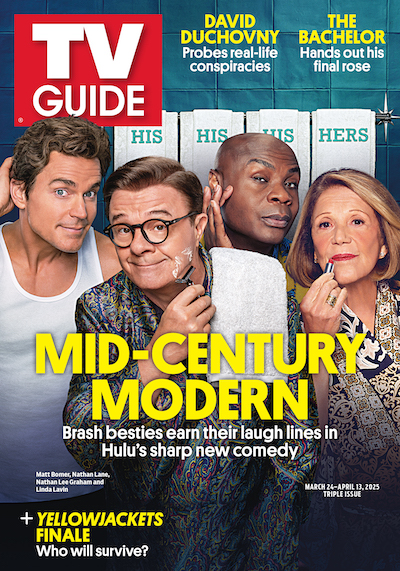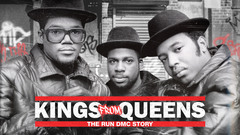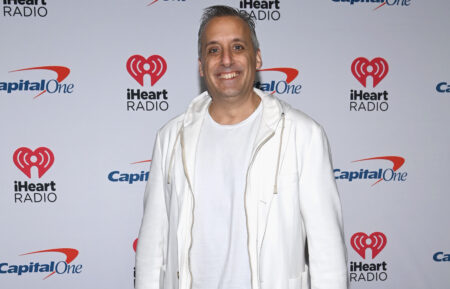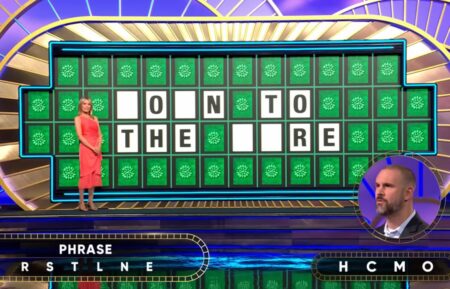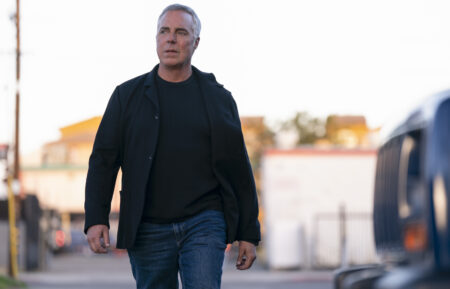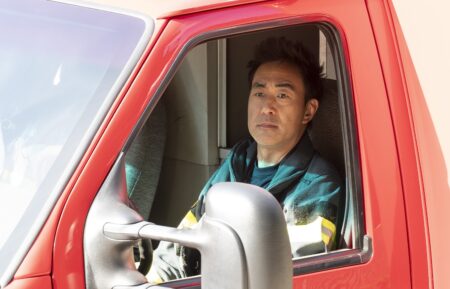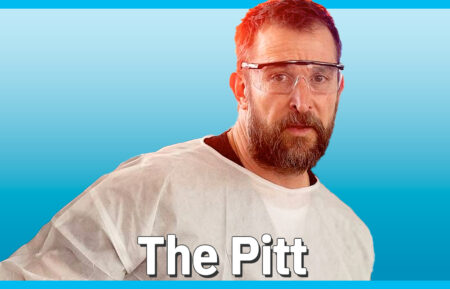‘Kings From Queens’: Run-DMC Stars Reflect on Their New Peacock Doc Series
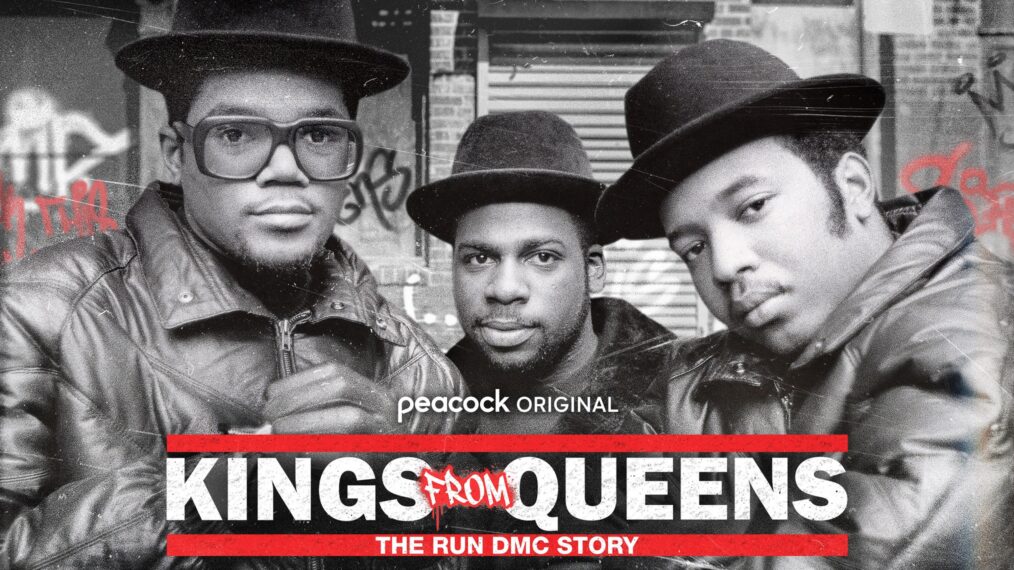
Q&A
From humble beginnings in Hollis, Queens, to the world stage of Live Aid, it has been more than 40 years since Run-DMC first changed hip-hop forever. Now Joseph “Rev Run” Simmons, Darryl “DMC” McDaniels, and Jason “Jam Master Jay” Mizell are having their story told through a new three-part documentary series Kings From Queens: The Run DMC Story. It premieres February 1 on Peacock.
Titans of music across genres including Ice Cube, LL COOL J, Questlove, Beastie Boys, Ice-T, Chuck D, Tom Morello, Salt, Doug E. Fresh, Big Daddy Kane, MC Lyte, and Ed Love speak about how the group inspired generations. And how they impacted the cultural landscape of the business with their unique and catchy sound.
Some of the biggest triumphs such as taking hip-hop mainstream thanks to “Walk This Way” with Aerosmith are chronicled. With those proud touchtones also comes immense tragedy. Among them at the top was Jay’s murder in 2002. Before the Peacock project drops we sat down with Rev Run and DMC, who also serve as executive producers, to reflect on their journey.
REV RUN
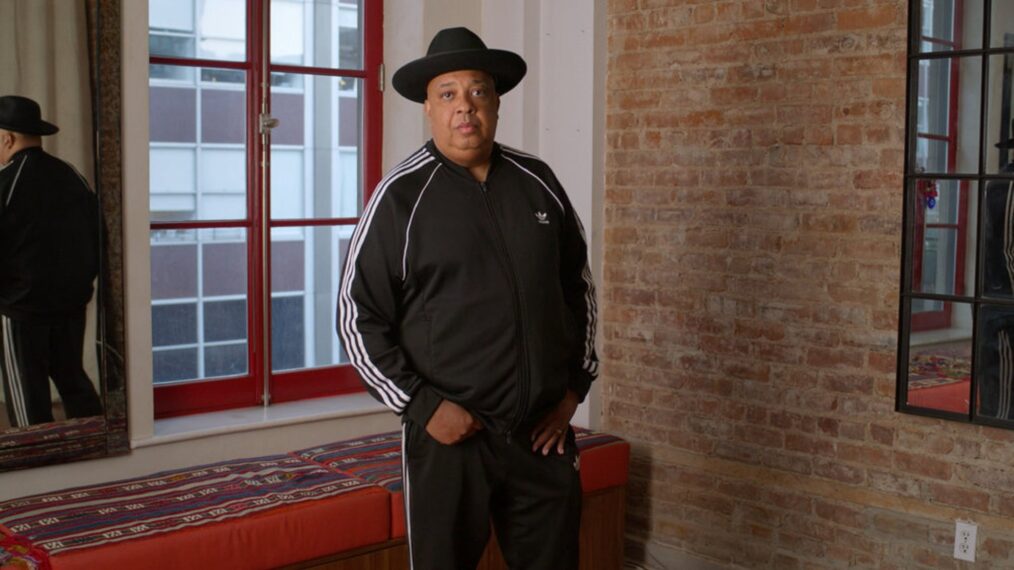
Peacock
What was it like to trace your roots and go back to your former houses? The old neighborhood?
Rev Run: It was cool. I live an hour or so from Hollis now. I can get there from where I’m sitting maybe in 45 minutes. I really don’t usually pull up to my old house or D’s house but I can. It’s not like I’m living in Hawaii. I’m still a New Yorker and live in Jersey. It was fun going back to Hollis and the places we hung were even cooler. We went back to the alleyway where D and I used to write rhymes. Going in front of D’s house there used to be a basketball hoop there. Or go back to my old house and see there are new people there. They came outside and said, “Oh, it’s Run!” Those were cool moments. It was cool going back to the exact places Run DMC once roam.
Run DMC was so ahead of its time when it came to crossing genre lines and building a broader demographic. Did you find the doc helped you really appreciate what you’ve accomplished?
The whole 50th anniversary of hip-hop and having Rakim and Big Daddy Kane and all these people and all the rappers go on. I can reflect and feel very proud we were able to impact the world the way we did. I’m happy everyone is getting their flowers. This documentary is really cool, to see others in it as well. Where it’s like Grandmaster Caz at Rock the Bells. You might say,” Look there is Run!” I’m like, “There is Grand Master Caz. Is that Kool Moe Dee? That’s Grandmaster Flash. I get the same thing fans of mine might feel. I get to feel those earlier rappers that were there before Run DMC, too. It feels really good.
Is there anyone on the doc that really surprised you?
I was excited to have everybody. Everyone spoke to the love of the genre of hip-hop. It was a great experience seeing all these people growing up with hip-hop. Doug E Fresh was cool talking about our three distinct personalities. Talking about how Jay branched off and started making records and how DMC is doing what he does right now. It was cool hearing him break that down.
How was it having Jay’s family participate in the project? It must have meant a lot to you.
Definitely. I miss Jay every day. I love him dearly. Just hearing his family talk about him was very touching.
Your story is well documented, but what are you most excited for viewers to see? It’s great you have these three chapters to expand on things rather than rushing through big moments in one hour or so.
To have it in three blocks, it all stands out to me. If you weren’t around and are younger and don’t know the history of hip-hop, here’s the Run DMC story. For me, being able to present that to the world and let people see walking down Hollis or Darryl standing in front of this house, or talking about turntables coming out in the parks. Those are moments like, “Wow, I didn’t realize that there were block parties and that’s how rap got started. I like showing people how it really went down.
Music has been a powerful vehicle for the times. As hip-hop continues to celebrate its 50th anniversary, what’s the state of the genre?
I think it’s going well. I love listening to Nicki Minaj’s’ new album. I’m listening to these new records and they are gripping me. Whether it is Nas who keeps putting out records. Drake will not stop. They are relentless rappers out there. I’m enjoying seeing stuff going on now. It’s going down. It’s exciting to watch.
DMC
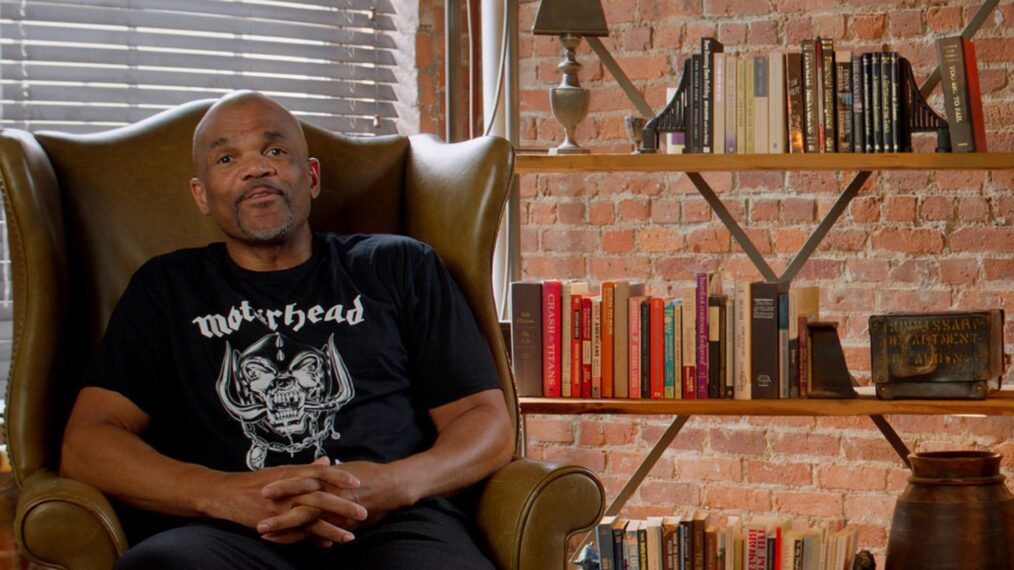
Peacock
How is it for you to look at the history of the group through today’s lens?
DMC: It’s all very surprising to me. Run used to say everyone else got to experience Run-DMC. We didn’t get to because we were doing it. I think that’s what will be enjoyable about this documentary. You’re going to hear from a lot of people who said we inspired them. For me personally, I just wanted to write some rhymes where people thought I was good at this. At the same time, I wanted to fulfill a dream. I wanted to be a rock star, but I couldn’t sing as good as Freddie Mercury. From my first single, “It’s Like That” to “Walk This Way” to “My Adidas” and 1993 with “Down With the King.” It has all been a blur. The documentary is what happens to me every day. People telling me I did this and that. Here it is in doc form. It’s going to be very motivational to me.
How was it to hear all the people you all touched?
It’s all very humbling to me and something I don’t think about all the time. When I see Tom Morello saying, “You’re the greatest thing to ever happen. I saw you at this little club Dragonfly in LA and it was the best performance ever.” Now the world is going to see what happened when Steven Tyler took the mic stand in the “Walk This Way” video and knocked down a wall that was separating us. That didn’t just happen in the video. It happened all over the globe. Now everyone who has been part of that experience is going to know what the hype of this Run-DMC thing is. We did some cool stuff.
Your side of the documentary delves into how you were inspired by superheroes. You even liken yourself to Peter Parker. Run-DMC also had an impact on pop culture. I think about some of the big moments like Run-DMC performing at WrestleMania 5 when you did the “WrestleMania Rap.”
I was a wrestling fan too. Run and Jay were not the fans. Our manager at the time said,” D, I’m going to surprise you and do something for your birthday. He took me to Atlantic City and WrestleMania. It was amazing. But with the whole crossover thing, you look at Wu-Tang with the Kung Fu movies. There Ghostface and Tony Starks. Before hip-hop fame, we were the little kids reading comic books and watching The Jetsons and The Flintstones. In reality, our culture is a manifestation of pop culture. When you are searching for who you are, you realize you’re somebody else.
My whole thing of shouting Queens New York was not to represent my hood. I wasn’t a street kid. I wasn’t in a gang or selling drugs. I had to be in the house when the street lights came on. While reading these comic books I could relate to Peter Parker. And he really lived in Queens! So when it was time for me to come into hip-hop, Run put me in the group not knowing I was already prepared for it because I was already pretending to be the most popular entity in the hip-hop universe. I was pretending to be a superhero on the microphone. Once me, Jay and Run got together we were unstoppable. We were like the Fantastic Four or whatever you want to compare us to.
What does it mean to you to have this out more than 40 years after the group got together and in today’s landscape?
The landscape is a little weird right now because it’s not about hip-hop. With “My Addidas,” we took the beat from the street and put it on TV. We took everything hip-hop. It was a total culture, which meant respect, responsibility, and artistic and creative presentation that would resonate with everybody across all borders and genres. We didn’t let the financial benefits of the music industry take it away. When you look at hip-hop now, it’s not hip-hop. That’s someone rapping over some music in front of people.
That’s just someone rapping over some music. That’s music business bull. Hip-hop is a DJ with turntables and the rapper guy or MCs. It’s the MCs rhyming while the DJ is cutting in front of an audience. That’s hip-hop. Even the 50-year celebration of hip-hop wasn’t hip-hop. It was 44 years of recorded rap celebration. They didn’t talk about DJs, breakdancing, graffiti, or none of the clubs, What Run-DMC did was come along and would not do a show if Jay’s turntable wasn’t on. If you look at us at Live Aid in 1985. The wind is blowing. The needle wouldn’t stay on the record, but we kept going live. That’s hip-hop. Right now it’s rapping over recorded music. The reason why we are so relevant today is because nobody does it like we do it. When Eminmen inducted us into the Rock & Roll Hall of Fame, he said to our faces that nobody will ever do it the way did…
Kings From Queens: The Run DMC Story premiere, February 1, Peacock
From TV Guide Magazine
How Hulu's 'Mid-Century Modern' Is a 'Golden Girls' for Our Times
Settle in for some older and bolder laughs with the BFFs of a certain age in the new comedy starring Nathan Lane, Matt Bomer, and Nathan Lee Graham. Read the story now on TV Insider.

